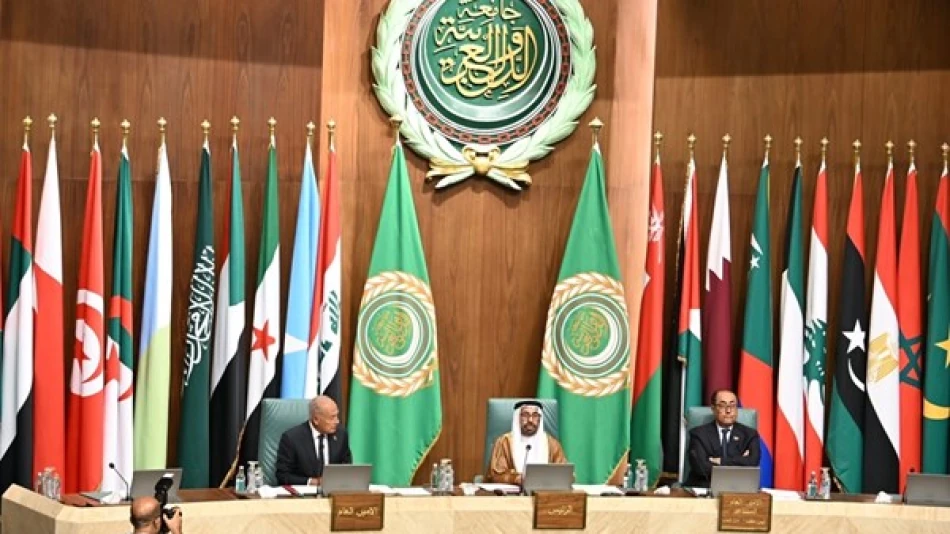
UAE Chairs Arab League's Regular Session, Driving Regional Cooperation
UAE Takes the Helm: Arab League Confronts Regional Crises at Critical Cairo Summit
The United Arab Emirates assumed the presidency of the Arab League's 164th regular session in Cairo today, positioning itself at the center of Middle Eastern diplomacy as the 22-member organization grapples with mounting regional challenges. The gathering comes at a pivotal moment when Arab nations face unprecedented humanitarian crises and geopolitical shifts that demand coordinated responses.
Strategic Leadership in Turbulent Times
UAE Minister of State Khalifa Shaheen Al Marar led the proceedings at the Arab League headquarters in Cairo, with Secretary-General Ahmed Aboul Gheit and UNRWA Commissioner-General Philippe Lazzarini in attendance. The presence of the UN Palestinian refugee agency chief underscores the urgency of humanitarian issues dominating the regional agenda.
The UAE's assumption of the rotating presidency reflects its growing diplomatic influence in the Arab world, particularly as traditional powerhouses like Egypt and Saudi Arabia navigate complex domestic and international pressures. This leadership role allows Abu Dhabi to shape regional discourse while advancing its vision of pragmatic, business-oriented diplomacy.
Beyond Ceremonial Proceedings
Institutional Accountability Takes Center Stage
The council reviewed the Secretary-General's comprehensive report on organizational activities and the implementation of decisions from the previous session (163-164), alongside a semi-annual compliance report from the Follow-up Committee on Resolutions and Commitments. This focus on institutional effectiveness signals a maturing approach to multilateral governance, moving beyond symbolic gestures toward measurable outcomes.
Regional Files Under Scrutiny
Ministers examined multiple Arab and regional dossiers, though the specific agenda items remain diplomatically veiled. Given current regional dynamics, discussions likely encompassed the ongoing humanitarian crisis in Gaza, Syria's reconstruction challenges, Lebanon's economic collapse, and the evolving security landscape across the Sahel and Horn of Africa.
The UAE's Diplomatic Calculus
The Emirates' presidency comes as the country continues to position itself as a regional mediator and economic hub. Unlike previous Arab League sessions that often devolved into rhetorical exchanges, the UAE's business-first approach may inject pragmatic solutions into long-standing regional disputes. This aligns with Abu Dhabi's broader strategy of economic diplomacy, evidenced by its normalization agreements with Israel and its role as a neutral venue for international negotiations.
Implications for Regional Stability
The timing of this session is particularly significant as Arab nations face a confluence of challenges: economic pressures from global inflation, climate-related disasters, and the spillover effects of international conflicts. The UAE's leadership could facilitate more effective resource mobilization and coordination, especially given its financial capacity and established international partnerships.
For regional observers, this presidency represents a test of whether the Arab League can evolve from a talking shop into an effective crisis management mechanism. The UAE's track record in hosting international summits and mediating conflicts provides cautious optimism, but success will ultimately depend on member states' willingness to move beyond traditional diplomatic posturing toward concrete action.
Most Viewed News

 Layla Al Mansoori
Layla Al Mansoori






